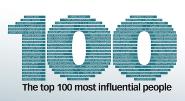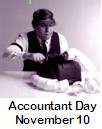Finally, some hard hitting rumor reported as news on Thursday, July 30. According to Jesse Westbrook and Ian Katz of Bloomberg, Mary Schapiro has narrowed down Chief Accountant finalists to two: James Kroeker (accounting firm candidate with ties to Clifford Cox and Robert Herz) and independent Jack Ciesielski.
I’ve talked with Westbrook before, and he has been following the chief accountant for many months. Westbrook also reported Niemeier’s candidacy. I suspect that these rumors are fairly square on.
This is an interesting development from early June when I reported on leaks that there were five finalists. On June 4, I supplied more information about each candidate in Thoughts About Candidates For Chief Accountant.
James Kroeker, acting Chief Accountant, and Wayne Carnall, chief accountant of the SEC’s Division of Corporation Finance, are both in-house candidates and IFRS proponents, the issue of the day, year and decade. That Kroeker remains as finalist is an endorsement of his performance as acting chief. He seems to have done well in discussions with Congress as he defended fair value. He was chief architect of an SEC report that concludes fair value accounting did not cause the recent financial mess.
Jack Ciesielski beat out Charles Niemeier as the anti-IFRS candidates (that is, U.S. should not adopt IFRS). Both have impressed with the quality of their research on IFRS and other issues. I suppose Jack’s ascendancy is not surprising given that Charley has been a lightening rod, but I still love Charley. We owe him much gratitude for his 2008 speech that enticed hundreds of thousands of U.S. accountants to come out of the woodwork and declare their opposition views to IFRS.
Jack Ciesielski has written at length about the perils of U.S. adoption of IFRS, at least as currently formulated and with its current structure. His Analyst’s Accounting Observer is a great resource.
Both remaining candidates are fair value proponents.
Who will win out? I don’t really know Mary Schapiro, and it’s her call. She faces a great deal of pressure from Barak Obama and Paul Volcker to appoint someone who will implement G-8 recommendations. Kroeker is this person. On the other hand, she seems to have an independent streak and a mind of her own. Both qualities could lead her to support the anti-IFRS candidate.
The country does not need a big four Chief Accountant. Kroecker would triumph the preparers of accounting information over the users. He has ties to the foul Christopher Cox. Foxy John Kroecker will eat us all hens for supper.
If Mary Schapiro is true to her stated prinicples, she will act to protect investors and appoint Jack Ciesielski.
Why has this taken so long? Schapiro has been under intense pressure not to appoint an anti-IFRS person. But, she has resisted, because the U.S. adoption of IFRS is clearly the wrong thing to do. Had Kroeker not done such a fine job in the fair value defense, I suspect that Ciesielski would already have been appointed.
Over and out – – David Albrecht













